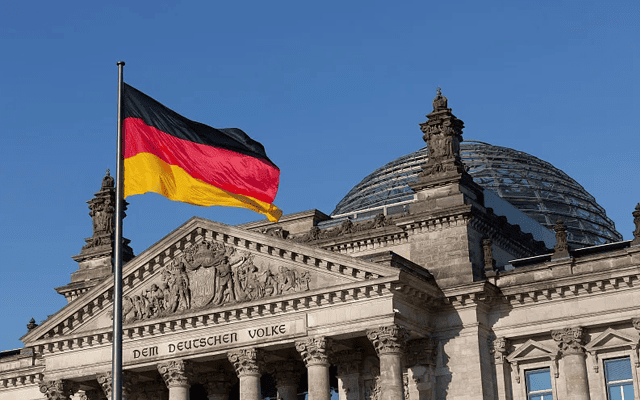Introduction: Germany’s Renewable Energy Momentum
Germany is a global leader in wind energy. The nation continues to drive its ambitious shift toward a sustainable future. With a goal of achieving net-zero emissions by 2045, wind power is becoming a critical part of the national energy mix.
Large onshore and offshore wind farms often make the news. However, a significant transition is happening in rural backyards: the adoption of Small Wind Turbines (Elege wind turbine). These compact systems usually range from 1 to 10 kilowatts in capacity. They empower homeowners, farmers, and small businesses—the ‘prosumers’—to generate their own clean electricity.
Initial investment for a wind energy system can be substantial. Fortunately, the German government offers robust support. Various financial institutions provide grants, subsidies, and low-interest loans. These programs make small-scale wind power a financially viable reality. This guide explores the key financial support options for small wind turbines in Germany.
1. Government Subsidies: The Federal Subsidy for Efficient Buildings (BEG)
The cornerstone of Germany’s support is the Federal Subsidy for Efficient Buildings (BEG – Bundesförderung für effiziente Gebäude) program.
While the program initially focused on building renovations, the BEG framework now promotes the integration of renewable energy solutions. This includes small wind turbines(Elege wind turbine). The program provides direct financial incentives through different tracks:
- BEG WG (Wohngebäude): For residential buildings.
- BEG NWG (Nichtwohngebäude): For non-residential buildings (commercial or public).
- BEG EM (Einzelmaßnahmen): This category often covers the installation of a renewable energy system.
What the BEG Offers:
The BEG program offers two primary forms of assistance:
- Direct Grants (administered by BAFA): These are non-repayable subsidies for specific, qualifying individual measures.
- Promotional Loans (administered by KfW): These offer low-interest financing for comprehensive upgrades or construction projects.
Applicants can access promotional loan interest rates, sometimes as low as 0.64%. Maximum credit limits can reach up to €60,000 or even €150,000 per residential unit. This depends directly on the scope of the project.
2. Low-Interest Loans and Incentives from KfW Bank
The KfW (Kreditanstalt für Wiederaufbau) Bank is Germany’s state-owned development bank. It offers low-cost, long-term financing for eco-friendly projects .
The bank’s Energy-Efficient Construction and Refurbishment Programs (KfW-Förderprogramme) are crucial for financing clean energy transitions:
- Attractive Loan Volumes: Homeowners can secure loans of up to €120,000 per housing unit from commercial banks. Their new construction or renovation must exceed required energy efficiency standards.
- Repayment Bonuses: Projects meeting the highest efficiency classes benefit from substantial repayment grants (Tilgungszuschüsse). These bonuses can range from €18,000 to €30,000. They effectively reduce the total loan amount and lower the net investment cost.
3. Broader Green Financing Initiatives
Beyond direct government and KfW programs, the German financial market is strongly geared towards sustainable investment. These are often called “green loans”:
- Institutional Funding: Major financial institutions, sometimes backed by the European Investment Bank (EIB), allocate specific funds. These support small and medium-sized renewable energy installations.
- Targeted Bank Products: Many commercial and regional banks now offer specialized loan products. These loans come with favorable terms for renewable energy projects. They recognize the long-term stability and positive environmental impact of these investments.
4. The Economic Case: Long-Term Savings and Prosumer Benefits
Financial support is only part of the equation. The intrinsic economic benefits of installing an SWT further solidify the investment:
- Energy Price Hedging: Generating your own power reduces reliance on utility companies. This protects your household or business from volatile electricity price increases.
- Grid Revenue (Feed-in): Modern, grid-connected SWTs allow households to become “prosumers.” They can sell excess electricity back to the public grid, providing a reliable source of secondary income.
- Off-Grid Independence: For remote locations, extending utility power lines is often too expensive. A stand-alone small wind system is far more cost-effective. It’s often paired with battery storage for energy independence.
- Rapid Energy Payback: A wind turbine generates more energy than was used to manufacture and install it in a surprisingly short time. This makes wind power a highly sustainable and resource-efficient choice.
5. The Future: A Strong Commitment to Wind Power
Investing in a small wind turbine today aligns with Germany’s powerful, long-term energy strategy. The country has set clear, ambitious goals that ensure the continued expansion and support of wind energy:
- 2030 Target: Germany aims for a total installed wind capacity of 145 gigawatts (115 GW onshore and 30 GW offshore).
- 2045 Target: The nation is committed to achieving carbon neutrality.
The government plans to expand onshore wind capacity by thousands of megawatts annually. This makes the environment for green electricity investment exceptionally robust and stable. It offers private investors a secure and meaningful way to contribute to—and benefit from—the national energy transition.
Conclusion: Start Your Clean Energy Journey with Elege
Small wind turbines are moving from a niche technology to a mainstream solution in Germany. Generous subsidies under the BEG program and favorable low-interest loans from KfW are lowering the financial barriers. For homeowners and smart businesses, now is the perfect time to explore the potential of small wind power. Harness the German wind for a more sustainable and financially independent future.
Ready to Harness Your Wind Potential?
Understanding the financial landscape is the first step. The next is to evaluate your specific location and energy needs.
Do you want to assess if an Elege wind turbine is the right green investment for your property?
At Energy Elege, we specialize in feasibility analysis. We also help you navigate the German support programs to maximize your returns with our reliable wind turbine solutions.
Take the next step towards energy independence:
- Visit our site today to learn more about the Elege wind turbine and how we can guide you through the grant application process.
Start your clean energy journey now: https://energy-elege.com/

